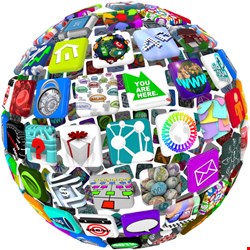
In addition, 70% of smartphone owners surveyed said they feel their device is safe from hackers, malware, and other types of cybercrime, according to a survey of 2,337 US adults conducted by Zogby International for NCSA and McAfee.
“It is clear that people aren’t viewing their mobile devices as incredibly valuable digital assets that are in need of protection. They don’t seem to be making the connection that their smartphone is the equivalent of their computer”, said Michael Kaiser, executive director of NCSA.
“Consumers need to protect these devices; they need to protect the information that is on them. Most of these devices have incredibly valuable information”, Kaiser told Infosecurity.
The survey also found that more applications are being developed and downloaded to meet a variety of user interests and needs. In the last six months, the applications most smartphone owners say they have added to their phones are games (46%), followed by social networking apps (37%).
Only 26% of smartphone owners said they always read the developer policy on the use of personal information when downloading an app and a third (31%) said they never read the policy.
“People don’t fully understand how these devices function – that they have the potential to know where you are and that they contain enormous amounts of personal information about you”, Kaiser said.
Smartphone users are split as to whether they have ever abandoned downloading an app over security or safety concerns (50% to 45%). Of those who have decided not to download an app over a security or safety concern, most said they did so because they were unsure of what data about themselves was being collected and how it would be used (71%).
“So that is a good sign. On the other hand, they probably downloaded other apps that shared information that they weren’t aware of”, Kaiser observed.
NCSA advised mobile users to adopt better security practices. These practices include keeping mobile anti-virus and other security software current and automating the updating process. In addition, users should enable password protection on their phones and ensure these passwords are long and strong.
Consumers should read app policies and understand what data on the device can be accessed through the app. Users need to update their apps because they may have security fixes in them.
Also, users should be cautious of WiFi hotspots, especially free ones that do not require any type of password or authentication to connect with. “WiFi is a more risky internet connection than direct access through your cell phone”, Kaiser warned.
“The threat landscape in the mobile world is mirroring the threat landscape for the desktop….People need to implement the same security measures for their smartphone to address the threats”, he said.